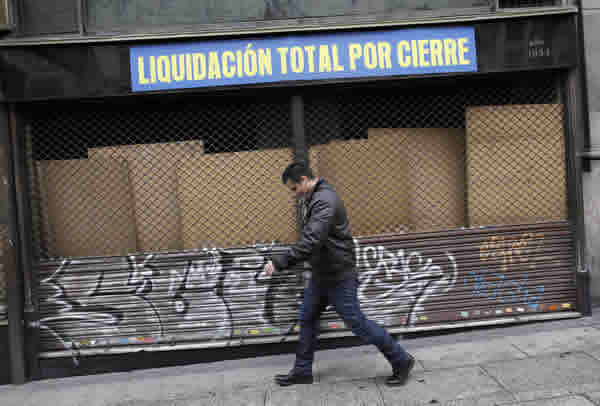The European euro/debt/growth/banking/identity crisis is entering its third year. With so many summits, toasts, tense conference calls, and self-congratulatory pronouncements of ultimate success by Europe’s brightest lights, why won’t the crisis just go away? Instead, it is ramping up as interest rates on Spanish and Italian debt rise to critical levels, signaling the end of another respite.
The answer, of course, is that in three years, Europe has yet to face up to the deepest causes and underlying consequences of a failed experiment. But before heaping scorn on Europe’s timidity, we should acknowledge first the dreadful consequences sure to follow from correcting their mistake. And have a little sympathy for the citizens of Europe today, who while compounding their errors must nevertheless suffer through the consequences of a grand mistake made nearly a generation ago.
The European crisis has no obvious start date, but a good candidate is April of 2009, when the European Union told France, Spain, Ireland, and Greece to reduce their budget deficits in the wake of the credit crisis. That’s an interesting group of countries. The Irish were bailed out at the end of 2010 after the Irish government essentially bankrupted the country by bailing out its own bankrupt banks. Greece has been bailed out repeatedly to little effect as it slides into deep depression. Spain is now under enormous pressure, and France is about to fire its government, if the polls hold true.
Much has happened since those early days as the crisis ebbed and flowed. European leaders constructed enormous bailout funds and a phony fiscal union. The European Central Bank morphed from respectable central bank into a monstrosity outside known definition. And countries at greatest risk of default have driven their economies toward depression while slashing government spending and hiking taxes in a vain attempt to appease capital markets, which are just playing them for fools.
For all this, it does appear that official Europe is beginning to understand what it will take to make the crisis go away. The clue is the language now spoken in polite company. Three phrases in particular merit noting: divergence, economic growth, and the wonderfully antiseptic expression of “domestic devaluation.”
An underlying theory of the euro currency experiment was the possibility of banding together countries of very different development levels in a common market with a common currency. The belief was that this configuration would set economic forces driving toward “convergence.” Poorer, less competitive countries would grow especially rapidly and would converge on the more advanced, like Germany and France. It didn’t happen. It’s now obvious that, if anything, these policies led to a devastating divergence. Devastating to all, but especially to the divergent, like Greece and Italy.
Early on in the crisis, affrighted by the depressing effects of fiscal consolidation, as it is known in the salons, or slashing spending and hiking taxes, as it is known everywhere else, European leaders developed a welcome newfound appreciation for economic growth policies. But then these new converts acted as though they could just pick up said policies like so many medications at the apothecary, and that the new policies would work miraculously overnight; wrong on both counts.
What would work? Cutting taxes, not raising them, especially on productive activity. This is the one policy they could adopt quickly, but chose not to.
In contrast, other policies that really matter—freeing labor markets and eliminating other regulatory costs—take time. Labor market reforms like cutting minimum wages, minimum vacation time, hire and fire rules, etc., quickly run afoul of entrenched union powers. Yet, even if the reforms are pushed through in full, years must pass to harvest an appreciable effect.
The expression “domestic devaluation” is the most interesting and most telling of all. To understand what this really means, consider its cousin, the external devaluation. This is familiar enough: A nation with a large and unsustainable trade deficit and a fixed exchange rate simply devalues the currency, setting a much lower exchange rate. Voila—instantly, workers are more competitive, because wages (when measured in foreign currencies) have been slashed, but the workers don’t see the cuts directly, so there’s little chance of rioting in the streets. Foreign goods cost more, but that just means buying more domestic stuffs. The trade deficit heals, and the economy recovers smartly. While the side effects can be troublesome, external devaluation works.
Euroland countries can’t just adopt an external devaluation amongst themselves because they don’t have their own currencies; they have the euro. So they have to resort to domestic devaluation, a fancy term for slashing wages and other costs directly. And not just by a percentage point or two; by 20 percent, 30 percent or more. This is something workers tend to notice, especially if they have loud and easily agitated unions.
Why won’t the euro crisis just go away? Even if the Greeks et al adopted every effective growth policy known to man, they would still be left with their unsolved devaluation problem. No bailout fund of any size can solve it. No amount of bank recapitalization can solve it. The countries at issue must decide which devaluation to pursue—external or internal. The former requires leaving the euro. The latter likely leads to revolution and then a euro exit. No, the euro crisis won’t just go away.





























